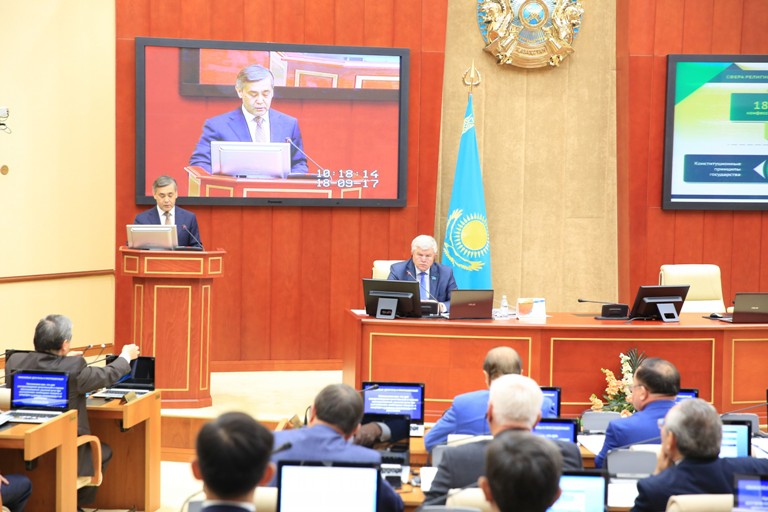ASTANA – Kazakh Minister for Religions and Civil Society Affairs Nurlan Yermekbayev spoke about the need to establish a Kazakh school of Islamic studies during a Sept. 18 Mazhilis (lower house of Parliament) government hour.
The ministry was established in September 2016 and he noted increasing religiosity among those in the population who have become vulnerable to the influence of radical ideologies. The ministry in no way opposes faith as a source of spiritual and moral values but works to formulate government’s policies to preserve the secular nature of the state.
“As the head of state noted in the state-of-the-nation address, there is a need to develop a zero tolerance for any kind of radicalism in the society, especially in the sphere of religion,” said Yermekbayev.
“Over recent years, the rapidly increasing religiosity surpassed the development of an appropriate culture and critical perception of religious dogmas. As a result, some religious people prioritised the literal observance of religious practices over laws and secular values. This produces serious risks and conflicts both within families and within the nation,” he explained.
“Any kind of religious fanaticism poses a danger, as it is not solely about poor religious knowledge,” he added.
The ministry seeks to ensure citizens’ rights to freedom of conscience and create favourable conditions for the activities of registered religious associations, noted Yermekbayev.
To achieve its goal of building a dialogue between state and religion, he spoke about the need to establish the nation’s own school of Islamic studies.
“Naturally, the question arises of where to find a solution and how to reach a balance. We believe the solution is that Kazakhstan needs to develop its own model of interaction between state and religion, our own school of interpreting Islam without being concerned or fearful of potential foreign criticism,” he said.
The ministry is forming a special group consisting of experts and religious scholars who will develop the basis of the school.
“We believe the focus should be on spiritual, moral and ethical values, but also taking into account the national, cultural and historical peculiarities of our multi-ethnic country. [It will also include] a moderate and flexible attitude towards outdated dogmas and its adaptation to current realities, perception of faith as a personal and intimate issue, promoting kindness and tolerance to people with different religious beliefs and respect and firm commitment to secular state principles,” said Yermekbayev.
External factors also have an adverse effect on the population, he added, including open information space and globalisation processes, where the internet, social networks and other communication tools allow for mass ideological influence.

